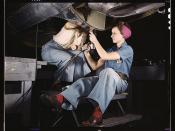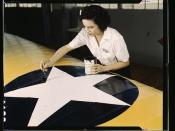"Her light verse reveals a frank delight in sex that conflicts with the popular Restoration image of the passive woman"ÃÂ After the Civil war, Charles II had returned to an almost chaotic England. Despite the hope of his subjects that the return of monarchy would bring peace and order, there were still many problems waiting for solution, mainly the unresolved conflicts of Charles I with the Parliament and some religious matters.
Puritanism and its pursuit of personal righteousness and honesty had marked literature with extravagance of thought and language, Latin quotations and classical allusions. It had a spirit of "moral earnestness and individualism"ÃÂ.
In the literature of Restoration there was a sudden breaking away from old standards, in the same way as society broke away from the rigidity of Puritanism. The early restoration writers sought to paint, as it were, realistic images of a corrupt court and society, so they remarked vices rather than virtues, and sought to ridicule the heroism and manners of earlier authors, therefore, the proliferation of the comedy on the reopened stages.
The turning of English Economy, from agriculture to manufacturing and commerce, as well as the growth of education and the middle class, made possible the emergence of productive publishing literary women . Nevertheless, women writers represented in this field an alternative culture which ran at the side of the dominant one. Therefore, in writing and their intention to publish, they were transgressing certain limits that an old tradition of sex roles had imposed on them.
Aphra Behn, In the very act of writing and publishing was breaking the limits of both her class and sex, for "in an age when many women of letters were intellectual aristocrats [,"æ] wealthy ladies who claimed to write only for pleasure and fame, she was a middle...


